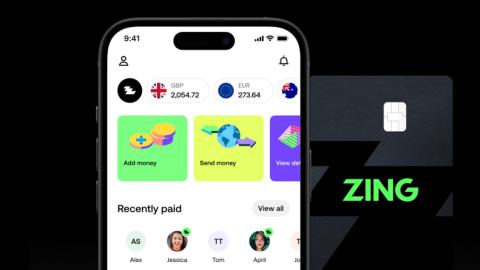HSBC has decided to close Zing, its currency conversion app designed to compete with money transfer giant Wise. Launched to considerable excitement in January of last year by the bank’s head of FX and payments, James Allan, Zing was registered as an e-money institution. The app, along with its debit card, allowed users to hold funds in over 10 currencies, send more than 30 currencies, and conduct transactions across over 200 countries and territories. Notable technology partners for the endeavor included Visa, Currency Cloud, and Tink.
The decision to discontinue Zing is expected to result in approximately 400 job losses, as reported by Reuters. A spokesperson for HSBC stated, “Following a strategic review of Zing within the HSBC Group and after careful consideration, we have made the decision to close Zing and integrate its underlying technology platform into HSBC. The bank is concentrating on enhancing its leadership and market share in areas where it holds a distinct competitive advantage and the greatest potential for growth.”
While HSBC’s incoming CEO Georges Elhedery deemed additional investment in Zing an inefficient use of capital, Wise continues to thrive, gaining both profits and customers. Wise’s embedded banking platform is also establishing a presence in the banking sector, partnering with major institutions like Morgan Stanley and Standard Chartered.
In a Finextra blog post, Ritesh Jain, former COO at HSBC, commented on Zing’s challenges: “Zing’s effort to directly compete with Wise and Revolut was essentially a ‘me-too’ product, struggling to establish a unique value proposition. In a marketplace where consumers demand speed, transparency, and cost-effective services, simply mimicking existing offerings falls short. Zing lacked a distinct, innovative edge, and without it, no amount of marketing or growth initiatives could drive its success. Financial institutions must recognize that in the fintech landscape, it’s not sufficient to compete in the current market—you must also foresee its direction.”
Jain further noted that Zing’s downfall highlights a larger issue: success is not just about product launch but also about innovating within traditional frameworks while managing risk-averse stakeholders and adhering to evolving regulations—all while contending with agile fintech competitors unburdened by similar obstacles.
